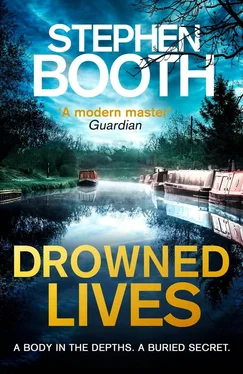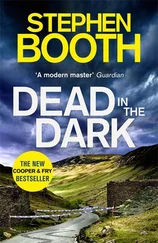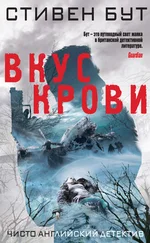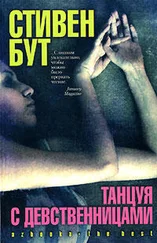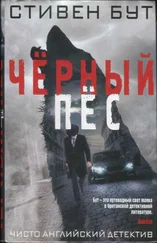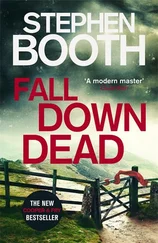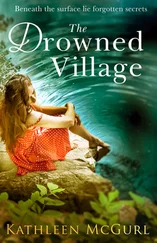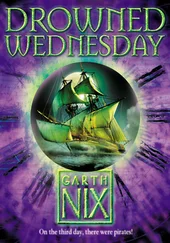I was thinking about my grandmother Mary, trying to sort out my impressions of her, which had become much more fluid and confusing after talking to the two people who’d actually met her — Samuel Longden, and now Leo Parker.
I remembered that suddenly wistful remark of Samuel’s when he’d mentioned her. ‘ She had the most striking eyes. The way she looked at you— ’
And then I remembered her. It was like suddenly recapturing a detail of a dream long after I’d woken up. I couldn’t recall what the occasion was, but a distinct presence had just slipped into one of my childhood memories — an image of a quiet woman who nevertheless seemed to dominate our sitting room at Stowe Pool Lane, regardless of who else had been there.
I saw a forbidding figure sitting upright in an armchair, her hair tightly permed, her clothes redolent of some old-fashioned scent that I’d never smelled since and would always associate with a sense of trepidation, a feeling that something awful could happen at any moment. It seemed to me that the adults had all been uneasy in her presence. As a result, I’d been a little frightened of her, and tried to avoid attracting her attention.
But she’d noticed me all right. She’d possessed such a piercing gaze that I felt she could see straight through me, knew every secret in my heart, disapproved of every boyish misdemeanour. How old had I been then? Very young, I thought. Four or five perhaps. Small enough to be propped on a kitchen chair in the corner of the room and told to keep quiet. It must have been some family gathering, but there was no wedding or funeral that fit the bill from that time. Had she visited us one Christmas in a last, futile attempt at reconciliation with the Buckleys?
If so, no one had ever told me she was my grandmother. And she’d never come back again.
‘I only want the manuscript, Rachel,’ I said. ‘You can hang on to the letters for now.’
Rachel had barely managed to get her coat off after arriving home from the vet’s surgery when I called round at number four. She looked surprised, but rather pleased. It was quite a reversal, finding me watching out for her arrival.
‘You’ve decided to read it properly at last, have you?’ she said.
‘I’ve read some of it,’ I said defensively. ‘All right, where did you get up to then?’
‘I’ve covered William Buckley.’
‘Up to the point he disappeared?’
‘Well, yes.’
‘And what did you think?’
I shrugged. ‘What is there to think? He vanished. There had been suspicions that he was fiddling the books, and defrauding the canal company. The committee were told he’d run off with some of the money.’
Rachel glared at me and put her hands on her hips like an irate schoolteacher. She had a high colour in her face from the cold outside, and her hair had fallen loose. She always seemed to be dressed more smartly these days than I was used to.
‘Do you want me to do all the work for you?’ she said.
‘No. But William seems to have been dishonest, a criminal. It’s not much of a thing to find in your family history.’
‘Perhaps.’
‘Did you read the second part of the manuscript?’
‘Yes, but the main part of the story has nothing to do with William Buckley. It’s about a different period altogether. Victorian.’
‘Is it?’ I said.
‘Yes, it’s about Josiah Buckley. He was William’s grandson. Josiah was found dead in the canal, but there’s a mystery about how he died.’
‘I know. Another mystery. That’s typical of the old man — going off at another tangent. But what happened to William? Does he just leave us hanging?’
‘It seems so.’
‘What can we do with incomplete information?’
‘I’ve been through everything,’ she said. ‘I’ve been through all the notes and all the papers. Then I went to look up the canal company minutes.’
‘In the County Record Office?’
‘Yes, of course.’
‘I hope you had better luck there than I did. They made me feel like an Egyptian tomb robber.’
She frowned at me impatiently. ‘It’s quite simple, as long as you follow the rules.’
‘Right.’
‘Anyway, the interesting thing is that only the assembly minutes are archived. The committee minutes are missing.’
‘I saw that. So what’s the difference?’
‘The assembly only happened once a year, and all the shareholders could attend. The committee ran the company’s affairs on a day to day basis, and they met at least once a month, sometimes twice. There must have been committee minutes, but they don’t seem to have survived when the Ogley and Huddlesford was taken over by the Birmingham Navigations in the 1840s.’
‘That must have been a blow to Great-Uncle Samuel. They would be full of information.’
‘Absolutely. But I’ve copied the assembly minutes from the relevant period, until after William Buckley disappeared. I think if we sit down together with the minutes, William’s letters, and Samuel’s notes, we might be able to piece something together.’
‘Come on, then.’
‘What, now?’
‘Unless you’ve got something else to do?’
‘No, I’m just surprised at this sudden burst of enthusiasm.’
‘I need to get on with it. I’ll explain why later.’
‘I suppose it’s best now anyway, since I’m going to be away for a few days.’
Rachel made some coffee, and we spread the contents of the files out on her sitting room carpet. We put Samuel’s incomplete manuscript to one side, stacked up the letters from William Buckley in the middle and the photocopies of the assembly minutes on the other side. We ended up with an untidy pile left over — notebooks, photocopied documents, clippings from old newspapers.
‘Rachel — have you come across any mention at all of my grandmother, Mary?’
She shook her head firmly. ‘None at all. There’s nothing about Samuel’s own life or his immediate family. Why? Did you hope there would be?’
‘No, quite the opposite.’
‘Why?’
‘It doesn’t matter.’
‘All right. What we should try to do is get everything into chronological order and see how they relate to each other.’
‘That sounds very organised.’
But it didn’t work out like that. Within minutes, we’d both been distracted by individual items as the fascination of the voices speaking from the past took hold of us. We lost track of time as we sat on the floor exclaiming at intriguing items that we passed back and forth to one another, or laughing at the archaic language. It was as if we’d been transported two hundred years into the past by a pile of mouldy paper. I began to get an inkling of Great-Uncle Samuel’s obsession.
Gradually, a picture of William Buckley emerged. Rachel made notes as we went along, calling out snippets of information or interesting details.
As Samuel had written, William’s father had obtained him an apprenticeship with a contractor in Tamworth, who already had a business working on canal projects. Within a few years he was sent to be trained by the great engineer William Jessop. He learned surveying and map drawing skills, and in time he became assistant engineer on a big tunnelling project on the Leeds and Liverpool. Jessop was evidently pleased with him, and when the great man agreed to take on the role of chief engineer for the Ogley and Huddlesford Canal, he recommended William as resident engineer.
I was immediately struck by the fact that William was only thirty-two when he was appointed — the same age as me. My ancestor seemed to have achieved so much in a short life, whereas I...
‘Are you still with us, Chris?’ said Rachel.
‘Yes, of course. Carry on.’
Читать дальше
